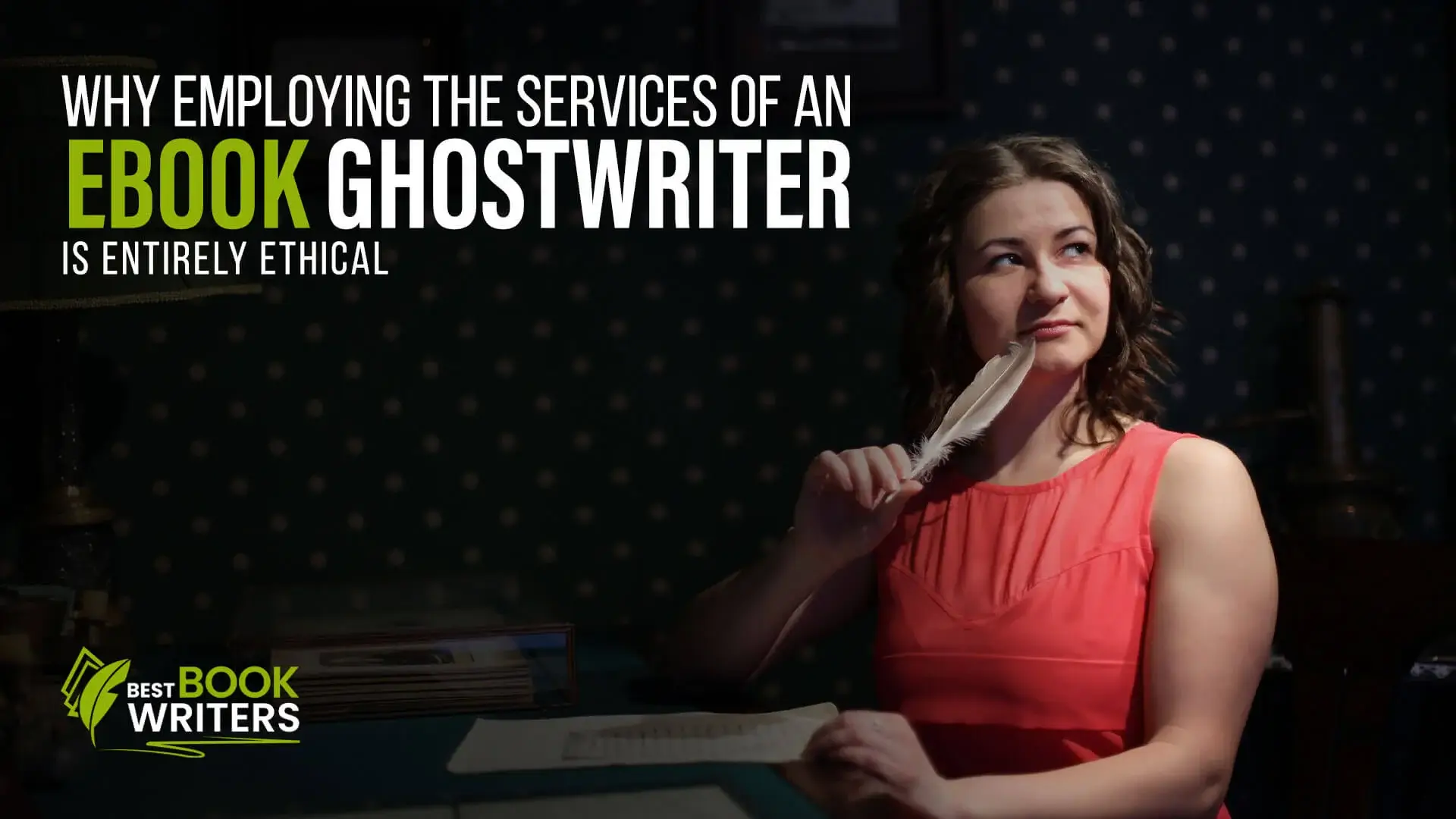Updated on November 17, 2023

Introduction:
In the dynamic world of literature and content creation, the use of eBook ghostwriters has become increasingly prevalent. While some may question the ethics behind employing a ghostwriter, this article aims to shed light on why hiring an eBook ghostwriteris not only acceptable but also entirely ethical. We will explore various aspects of this practice, addressing common concerns and emphasizing the positive impact it can have on both authors and readers.
1. Collaborative Creativity:
One of the key reasons why hiring an eBook ghostwriter is ethical lies in the collaborative nature of the creative process. Authors often collaborate with editors, designers, and marketing professionals to bring their vision to life. Similarly, engaging a expert ghostwriting services can be viewed as an extension of this collaborative effort, where the author and the ghostwriter work together to produce a compelling piece of literature.
2. Time Constraints and Efficiency:
Many authors face time constraints due to busy schedules or other commitments. Employing a ghostwriter allows authors to efficiently produce high-quality content without compromising on their time and energy. This efficiency contributes to the timely delivery of content, benefiting both the author and the readers.
3. Specialized Expertise:
Ghostwriters often bring specialized knowledge and expertise to the table. Authors may lack the necessary skills or experience in a particular genre or subject matter, and hiring a ghostwriter with the relevant background ensures that the final product is well-researched and professionally crafted. This not only enhances the quality of the eBook but also serves the readers better.
4. Maintaining Consistency:
For authors with multiple works or series, maintaining consistency in writing style, tone, and character development is crucial. Ghostwriters can help maintain this consistency, ensuring that each piece of work aligns seamlessly with the author's established body of writing. This enhances the overall reading experience and reinforces the author's brand.
5. Accessibility and Inclusivity:
Employing a ghostwriter can make literature more accessible and inclusive. Authors who may face language barriers or have difficulty expressing their ideas in writing can benefit from the collaboration with a skilled ghostwriter. This fosters diversity in literature and allows a broader range of voices to be heard.
6. Confidentiality and Privacy:
Authors often have personal stories or experiences they wish to share without being directly involved in the writing process. Hiring a ghostwriter ensures a level of confidentiality and privacy, allowing authors to open up about sensitive topics without the fear of their writing being compromised or misunderstood.
7. Acknowledgment and Transparency:
Ethical practices in hiring a ghostwriter include transparent acknowledgment. Authors who employ ghostwriters should openly credit their collaborators, ensuring that readers are aware of the collaborative effort behind the creation of the eBook. This transparency builds trust between the author and their audience.
8. Economic Considerations:
In the competitive world of publishing, authors often face economic challenges. Hiring a ghostwriter can be a practical economic decision, especially for authors looking to produce content efficiently without compromising on quality. It can be a mutually beneficial arrangement that supports both the author and the ghostwriter.
Conclusion:
In conclusion, the ethicality of hiring an eBook ghostwriter is rooted in the collaborative, efficient, and transparent nature of the creative process. As literature continues to evolve, embracing diverse voices and perspectives becomes essential. Employing a ghostwriter can be a strategic decision that not only benefits the author but also contributes positively to the literary landscape. Ultimately, the key lies in maintaining open communication, giving due credit, and ensuring a collaborative relationship built on trust and shared creative goals.
